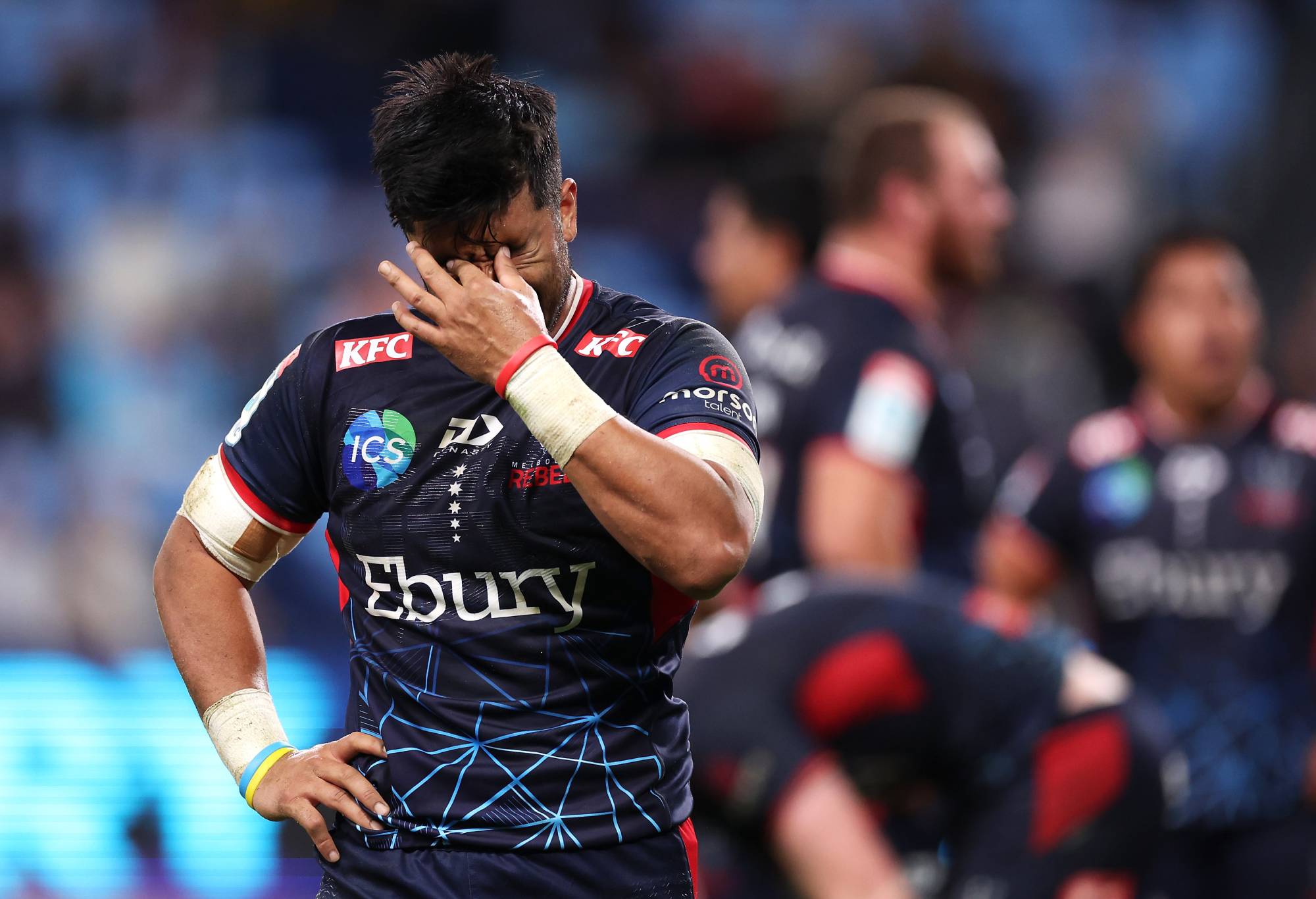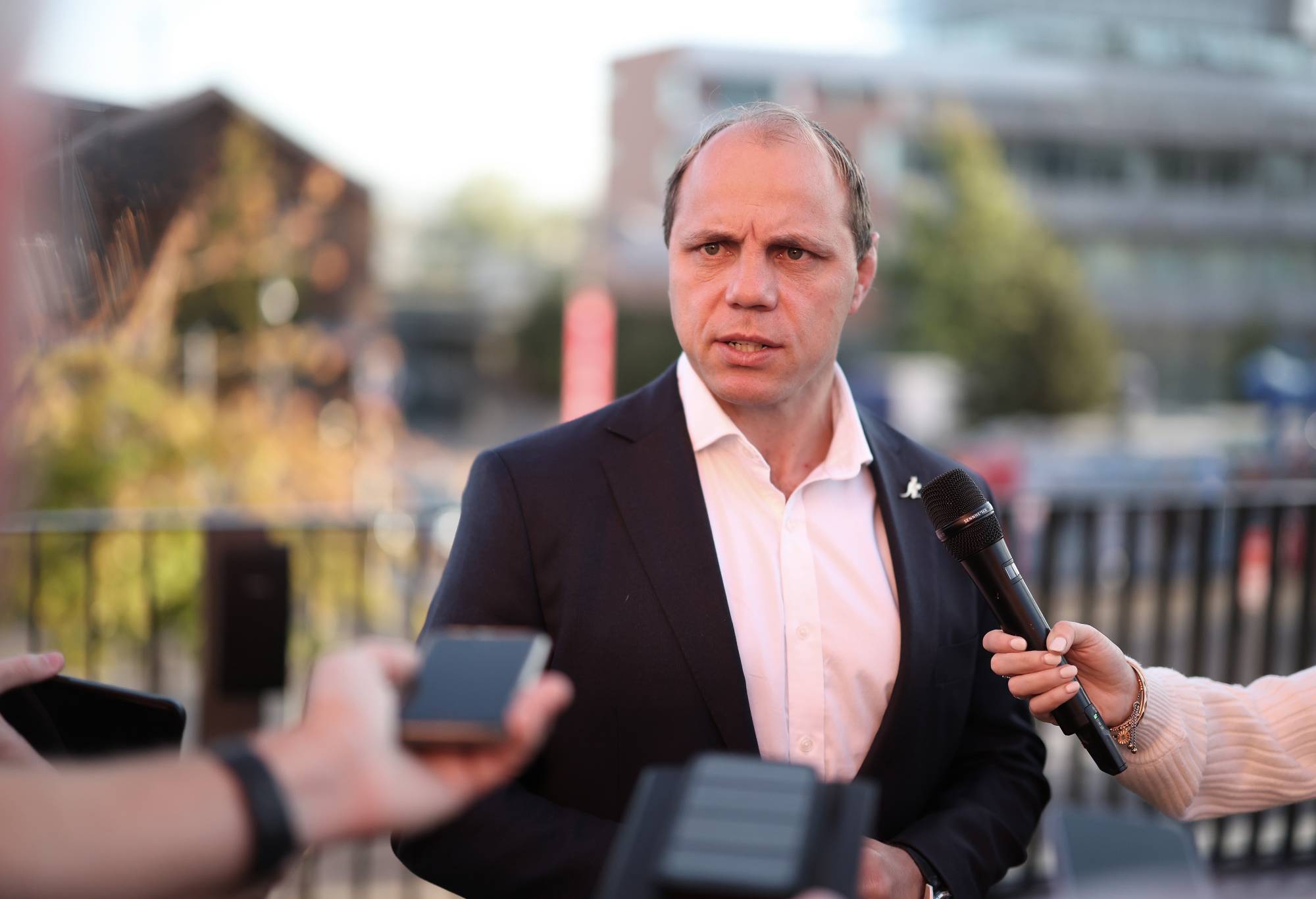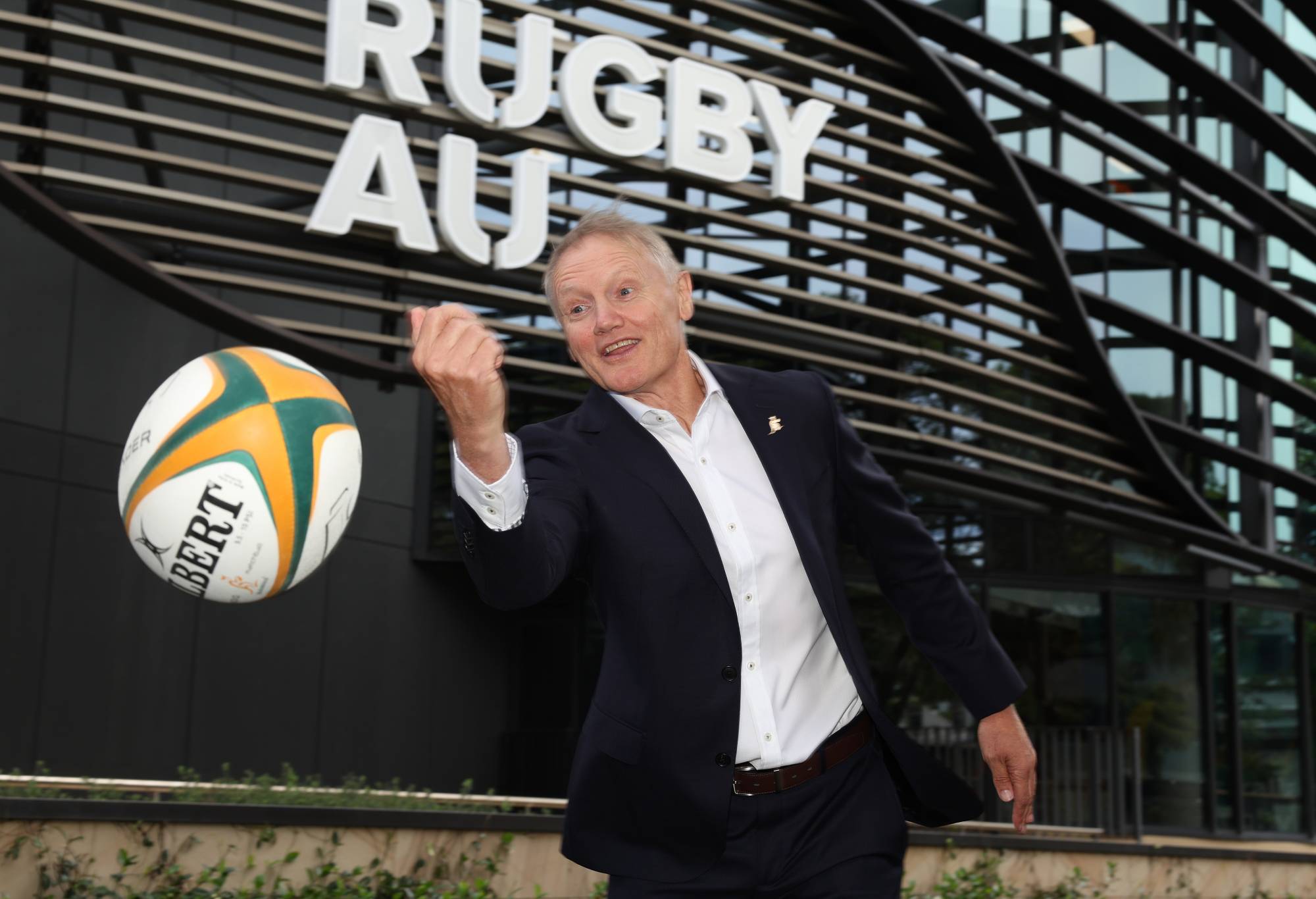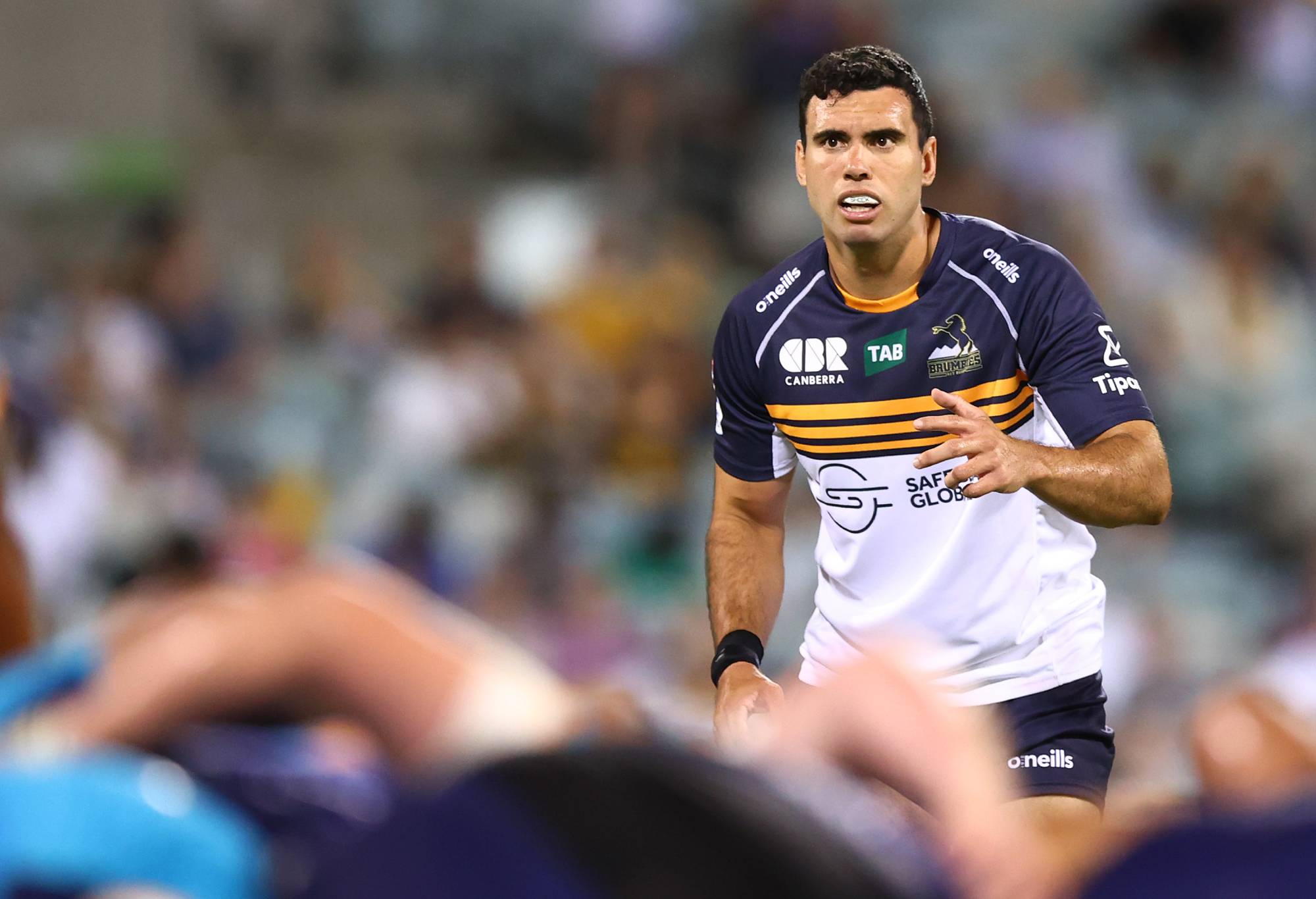The saddest thing about Australian Rugby right now is that it hasn’t learnt its lesson.
In a month when Tom Brady was throwing darts to Reece Walsh in front of a packed media gallery in Brisbane, Rugby’s headlines revolve around administration, debt and survival.
Many of us don’t want to hear it, but most people in Australia have barely registered there’s a Super Rugby competition starting in 3 weeks – and few care.
Sure, there were 3000 diehards at Ballymore on Saturday for what was, to put it kindly, a mixed quality trial between the Force and Reds.
But there remains no singular strategy in Australian Rugby. No coming together to deliver a world class product. No recognition that the time must be now.
Instead, we have parochialism and rampant denial. If $1.7million a year is the answer for the states, it begs the response, what is the question?
At least 2 state unions have debts and liabilities reportedly exceeding $10million, and a third is in a perilous position as of today.
Even if we could travel back in time to 2019 and ensure the grant survived Covid and a poor broadcasting deal, the states involved would likely still be in the red today.

Stacey Ili of the Melbourne Rebels. (Photo by Mark Kolbe/Getty Images)
Those who resolve to break even, to exist in a vacuum of reality and to continue on as if it’s still 1991 are destined to fail. Just ask Blockbuster, Kodak and Blackberry.
When centralisation, commercial and strategic, was first pushed 15 years ago, the state unions resisted on the basis the wrong people were in charge.
Just 15 weeks ago we again heard the same justification and we heard there was no plan for anyone to consider or sign up to anyway.
Now, with Phil Waugh, Joe Schmidt, Peter Horne and David Nucifora in the fold, we probably won’t hear that the wrong people are in charge or that there is no plan again, this year at least. That would obviously be ridiculous.
We just won’t hear anything different from the state unions, or more importantly see any change.
Eddie Jones was a disaster but also served as a distraction at the worst possible time.
His removal became a cause célèbre that took up too much of Australian Rugby’s emotional, political and financial resources at a time when all three are in short supply.
Why? Because it’s easier to look for silver bullets to save the game we love rather than grapple with why Rugby in Australia has been underperforming, directionless and barely breaking even for a decade, maybe two.
Joe Schmidt is no messiah. As he’s said, we can’t expect miracles from him. He’s the right man for the job no doubt, but he won’t arrest the terminal decline of the game, let alone change 20 years of disastrous administration without systemic, structural change.

Rugby Australia CEO Phil Waugh speaks to the media. (Photo by Chris Hyde/Getty Images)
If there was evidence the game in this country remains in complete denial following the World Cup, that evidence has only multiplied since.
“If only Australian Rugby hadn’t stopped the $1.7million annual grants” is a common refrain.
The NSW Rugby Union was in such a disastrous financial state that it didn’t just hand back its keys, it ran to HQ to do it.
The Rebels have now entered voluntary administration owing debts to the taxman, never a good position. The Australian has reported those debts are in the region of $12million.
Debts owed by businesses associated with Rebels backer BRC Capital, are estimated to be more than $50 million.
The Brumbies reportedly are holding on for dear life. To survive, the Canberra based franchise are probably counting on private backers to come in and play benefactor, just as Andrew Forrest did in Western Australia.

New Wallabies Head Coach Joe Schmidt at a Rugby Australia press conference. (Photo by Mark Metcalfe/Getty Images)
Brumbies Chairman Matt Nobbs has been vocal about his team’s position as well as their dealings with Rugby Australia.
Nobbs has previously all but admitted the Brumbies were in a hole at the time the annual grant was reduced, but fails to mention the national body was at risk of collapse when Covid struck and remains so.
More than that, he notes the grant was reduced after the latest broadcasting deal but omits to comment on why.
The deal fell short to put it mildly, because Rugby is now a second tier sport in Australia and no longer attracts a profitable or predictable audience let alone a competitive bidding war. That is the uncomfortable truth.
Super Rugby is no longer the world’s premier provincial competition. Its market is dwarfed by Europe and reduced greatly by the departure of South African franchises.
Private equity recognised all of this last year when it refused to value the game at anywhere near Rugby Australia’s estimate. When PE can place $200million in bonds and see 15% annual returns with no risk, why would it sit down with a national body and state unions who are calibrated to break even in the most competitive sporting market in the world?

Jack Debreczeni of the Brumbies. (Photo by Mark Nolan/Getty Images)
When Rugby partnered with Fox Sports in the 1990’s it was the second biggest sport in Australia. Come 2020 it was the 5th. Expectations of a $60million a year windfall plummeted to $35million at best.
Which brings me to Rugby Australia. The national newspaper’s sources have said “RA directors should be aware of fiduciary duty, that there is the potential that RA is not a going concern.”
In other words, Phil Waugh and the Rugby Australia board should be careful not to preside over a business that trades insolvent.
There is no money at Rugby Australia and the financial lifelines that do exist are borrowed at extraordinary interest rates against projected revenue from events taking place in 2025 and 2027.
Again, one has to ask the question: if $1.7 million is the answer each year, what is the question?
If the states continue to deny reality, continue to focus on just breaking even, on resisting the idea that they are better together, they’ll keep getting picked off by debt and delusion one by one.
And there may not be any national body to pick up the pieces afterwards.

































































































